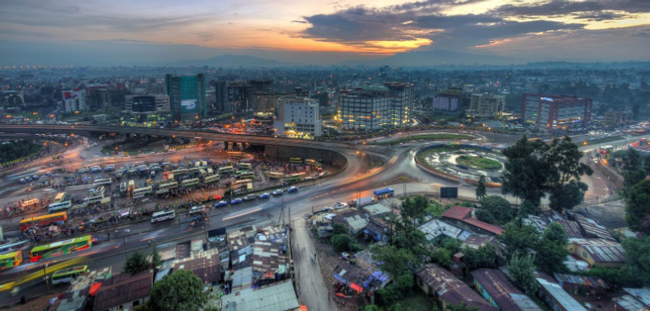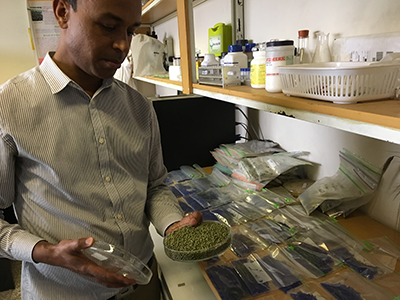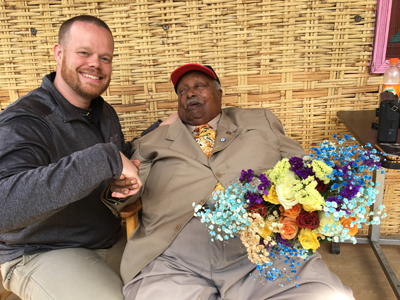

If you follow any of our social media accounts, you probably already know that Brian Anderson, Sales Manager at DNASTAR, made a trek to Ethiopia this past spring. During his trip, he visited Addis Ababa University where he presented “Bioinformatics, from sequence, to structure, to function: Using software to advance life science research” before presenting a 10-user network license as a gift to their Institute of Biotechnology.
I recently spoke with Brian about his trip, what took him there, and why he will be returning in years to come.
What took you to Ethiopia?
We have two children that are adopted from Ethiopia. For the March trip, we traveled back to Ethiopia to visit with my son’s birth mom to potentially assist in some income generating opportunities for her. My son had expressed interest in buying some land for his birth family, and has spent the last year raising funds. Our niece also raised some funds for a school for chairs, soccer uniforms, etc., which we delivered. We also went to participate in some other NGO-related activities, including taking part in a celebration at a school in the south.
How did you become aware of the needs of scientists at Addis Ababa University?
There has been a huge movement recently in East Africa to advance life sciences. I have been following news coming from the University for a number of years. When I learned that a new Biotechnology Center was being established, I reached out to the director, and some connections who graduated from the University. Addis Ababa University has a long history in Ethiopia, and there have been numerous researchers who have traveled abroad and made a name for themselves. We actually have a number of customers who are from Ethiopia.

What kinds of research are they doing at Addis Ababa University?
They have a number of fields of study. The University is known for their scientific research in public pathobiology and veterinary health. At the Biotechnology Institute I visited, a majority of their research focused on environmental microbiology, plant sciences (cereal), and medical microbiology. One of the people I met with was Dr. Kassahun Tesfaye, the Director of the Institute. He received his PhD at the University of Bonn.
You presented them with a 10-user network license as a gift to their Institute of Biotechnology. How will this help them? Do they have other technology needs?
After my presentation there were at least 30 researchers that personally came up to me to talk about their research. There were researchers doing everything from basic alignments, next-gen sequencing, all the way up to protein structure prediction. Having a comprehensive bioinformatic solution will only help advance the institute’s research. Currently for next gen sequencing data, they have to rely on collaborators abroad for everything. This gift will make things a little easier, and make researchers a little more self-reliant. They have installed the network successfully, and researchers have connected with me via e-mail since my return.
 You also met with the former president of Ethiopia. What did you discuss with him?
You also met with the former president of Ethiopia. What did you discuss with him?
His excellency Girma Wolde-Giorgis was president of Ethiopia from 2001-2013. He has lived a long life, and it was truly an honor to speak with him. His excellency has served in numerous government and NGO positions over the last 70 years. He was one of the first Ethiopians trained by American aviation technicians, and assisted in helping make Ethiopian Airlines a model for African air transportation. In addition to all his government positions, he has also served with the Red Cross, Ethiopian Chamber of Commerce, and various other trade and timber missions. As part of our meeting, I talked with him regarding various water initiatives, advancement of sciences in Ethiopia, and also some personal heartfelt recommendations for my son.
Do you think you’ll be returning to Ethiopia in the future?
For sure. Ethiopia will always be very close to our heart. There is something about the country that can’t be described. The smell of eucalyptus, spices, and diesel in the air. People so genuine, that they welcome total strangers into their residence without hesitation. People not just wanting, but dedicated to helping others, and going out their way to assist. The west could learn a lot from the sense of community that exists in Ethiopia.


Leave a Reply
Your email is safe with us.